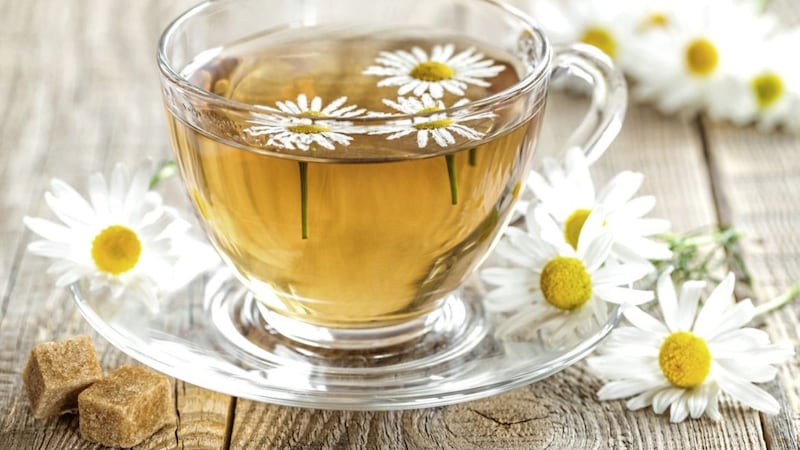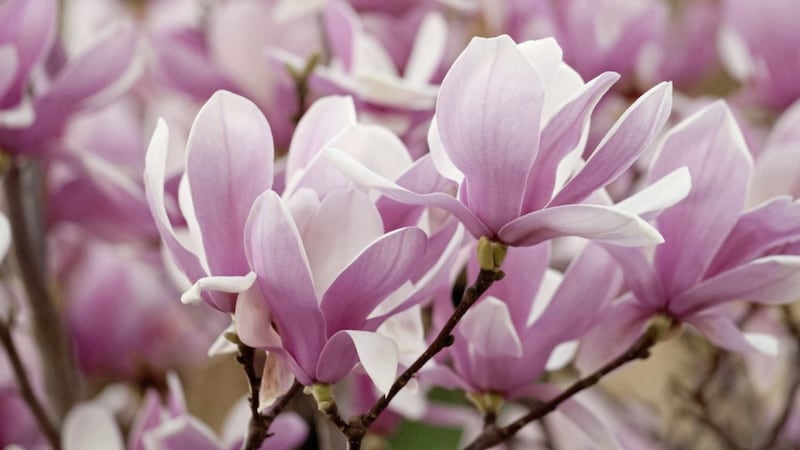THESE days, asking someone if they want a cup of tea is not just a simple matter of white or black, one sugar or none. There is a vast array of herbal and fruit teas available to choose from, often proclaiming therapeutic benefits from digestive health to a natural sleep aid.
Most fruit teas on the market do not have therapeutic benefits. If you are trying to cut back on caffeine and like the taste of fruit tea, they are fine to drink and will contribute to your daily water intake, but if you are looking for a tea with potential health benefits, check out the range of herbal teas on offer.
Here’s my round-up of some of my favourites, and why I recommend them:
PEPPERMINT: Plenty of people find peppermint tea is soothing for digestive health. It seems to help support symptoms of pain and may help settle an upset stomach. There’s not a recommended amount to drink, but start with one or two cups a day and see how you get on. Peppermint is often blended with spearmint to give a refreshing taste. Makes a refreshing after-dinner drink.
GINGER: Has anti-inflammatory properties and is thought to help relieve nausea. Try making your own by infusing a slice of fresh ginger and a slice of lemon in hot water to make a soothing drink. Adding a slice of ginger to your water bottle can also make a refreshing change.
CINNAMON: Renowned for its antioxidant content, anti-inflammatory properties and potential to support blood-sugar levels, this sweet tasting brew is idea if you fancy something sweet after meals, but don’t want to succumb to sugar cravings.
FENNEL: This is one to look out for to help gas, wind and bloating. A slight liquorice taste is not to everyone’s taste, but some people find fennel tea a better choice than peppermint tea for bloating.
CHAMOMILE: The quintessential bedtime tisane, chamomile has been traditionally used to help aid relaxation and a good night’s sleep. If you find the taste a bit odd, look out for a blended tea with other relaxing herbs like lavender or lemon balm.
TURMERIC: Is having a moment. From its potential anti-inflammatory effects, to its detoxification benefits and immune effects, turmeric is hot news right now. Although drinking turmeric tea is not a great way to get curcumin (one of the active ingredients found in turmeric) into your body (supplements are probably better), there are plenty of other antioxidants, polyphenols and active ingredients in turmeric with reported benefits for pain relief, immune support, circulatory benefits and liver support.
LEMON BALM: Studies show that lemon balm may help aid focus and concentration, as well as aiding relaxation. A zesty tasting citrus tea that makes a pleasant herbal drink.
NETTLE: Used as a traditional remedy in Ireland for generations, nettle tea is a rich source of minerals and is used as a diuretic for puffiness and water retention, to support prostate health and a blood purifier.
ROOIBOOS: This South African tea is a good choice if you are not keen on other herbal teas, as you can take it with milk. Packed with antioxidants, rooibos tea may help support a healthy immune system and aid liver detoxification.
GREEN TEA: Anyone wanting to pack an antioxidant punch to their daily diet would do well to add some green tea. Just remember that green tea does contain caffeine, so if you are sensitive to it, it may affect your sleep if taken later in the day. L-theanine is an interesting ingredient found in green tea that has calmative properties.








